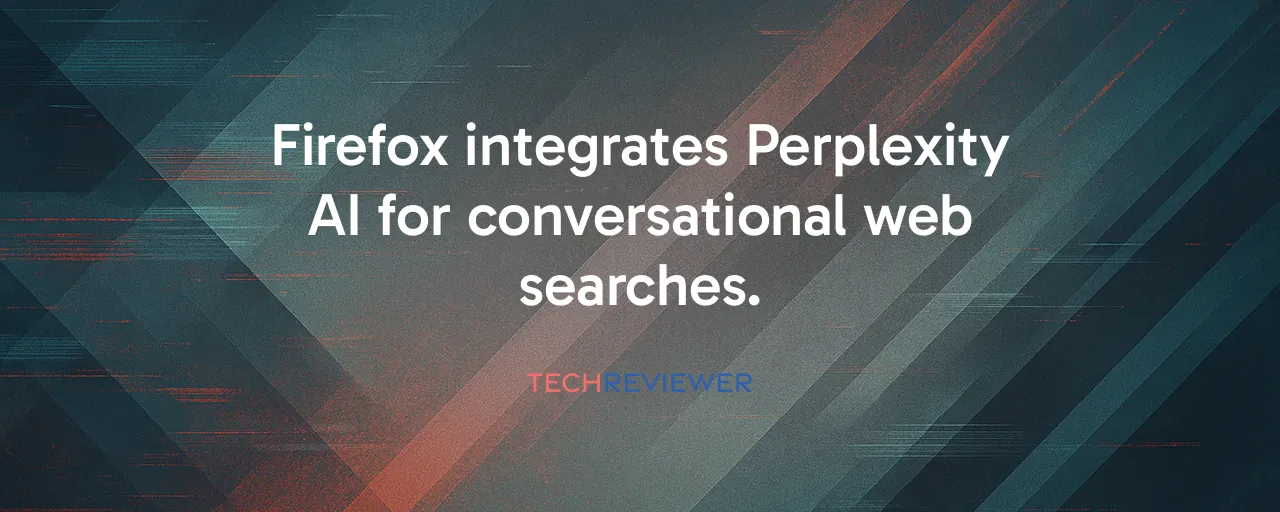A New Way to Search the Web
Mozilla's Firefox just made a bold move by rolling out Perplexity AI as a search option for its global desktop users. Unlike the usual list of links you'd get from Google or Bing, Perplexity delivers answers in a conversational style, complete with citations. It's like having a research assistant right in your browser, answering questions directly instead of pointing you to a dozen websites. This integration, announced on October 14, 2025, lets users toggle between traditional search and AI-powered responses through the address bar's unified search button. For anyone tired of sifting through endless results, this feels like a breath of fresh air.
What makes this stand out is Mozilla's approach. Instead of forcing AI on everyone, Firefox keeps it optional, letting users decide how they want to explore the web. The feature stemmed from a pilot program launched in June 2025 across the U.S., U.K., and Germany, where testers raved about its ease. Now, with positive feedback driving the global rollout, Mozilla plans to bring Perplexity to mobile devices soon. It's a clear sign that browsers are evolving to meet a growing appetite for smarter, faster ways to find information.
Why Conversational Search Feels Different
Perplexity's AI doesn't just spit out links; it processes over 780 million queries a month to deliver synthesized answers that feel like a conversation. Imagine asking, "What's the best way to reduce screen time?" and getting a clear, cited response instead of a wall of search results. Studies show 83% of users find this kind of AI search more efficient, especially for complex questions. Perplexity's ability to understand natural language and retain context across follow-up questions makes it a game-changer for students, researchers, or anyone digging for answers.
This isn't about replacing Google outright. Firefox still offers traditional search engines like Bing and DuckDuckGo, but Perplexity's integration taps into a broader shift. People want answers, not just links, and conversational AI delivers that with a human-like touch. Plus, Perplexity's commitment to not sharing or selling user data aligns with Mozilla's privacy-first ethos, making it a natural fit for Firefox's 274 million users worldwide.
Lessons From the Real World
Mozilla's pilot program offers a glimpse into why this integration clicked. During testing in three countries, users praised Perplexity's speed and clarity, with many saying it cut their research time in half. One user on Mozilla's Connect forum described it as "like Google, but it actually understands what I'm asking." This feedback pushed Mozilla to expand the feature globally, showing how real-world input can shape tech decisions. It's a reminder that user-driven design keeps companies grounded, especially when experimenting with something as new as AI search.
Meanwhile, content creators tell a different story. Publishers like Reuters and News Corp have struck licensing deals with AI companies, including Perplexity, to ensure their content fuels these tools while earning revenue. But others, like The New York Times, are suing over copyright concerns, arguing AI training on their work without payment is unfair. These cases highlight a tension: AI search saves users time but risks cutting website traffic by up to 15%, threatening ad revenue. The lesson here is clear: balancing innovation with fairness to content creators will define the future of AI-driven browsing.
The Bigger Picture for Browsers
Firefox's move comes at a pivotal moment. Google still commands 89.7% of the search market, but AI tools like Perplexity are chipping away, with 38% of users now dabbling in AI search. Competitors are jumping in too: Microsoft boosted Bing's U.S. share to 7.5% with ChatGPT integration, and OpenAI's rumored browser could shake things up by 2026. Mozilla, with its modest 2.25% browser market share, is under pressure to innovate while staying true to its privacy roots, especially since Google funds much of its $400 million annual revenue.
What's exciting is how this could change how we interact with the web. Perplexity's Comet browser, launched in October 2025, takes AI further by letting it navigate sites and handle tasks autonomously. Firefox's opt-in approach, though, keeps users in control, avoiding the backlash seen with earlier AI features that slowed browsers down. It's a smart play: offer cutting-edge tools without alienating loyal users who value choice.
What's Next for Web Discovery
The web is at a crossroads. AI search could make finding answers easier and more inclusive, especially for users who struggle with traditional interfaces. But risks loom large: misinformation from AI "hallucinations," privacy concerns from cloud-based processing, and a potential echo chamber if synthesized answers limit diverse perspectives. Mozilla's openness to adding more AI options, like ChatGPT or Claude, suggests browsers will keep experimenting to find the right balance.
For now, Firefox's Perplexity integration is a step toward a smarter web, one where users have more control over how they find information. It's not about ditching traditional search but giving people options to explore differently. As browsers and AI evolve together, the real challenge will be ensuring the web stays open, fair, and accessible for everyone, from casual users to content creators.
